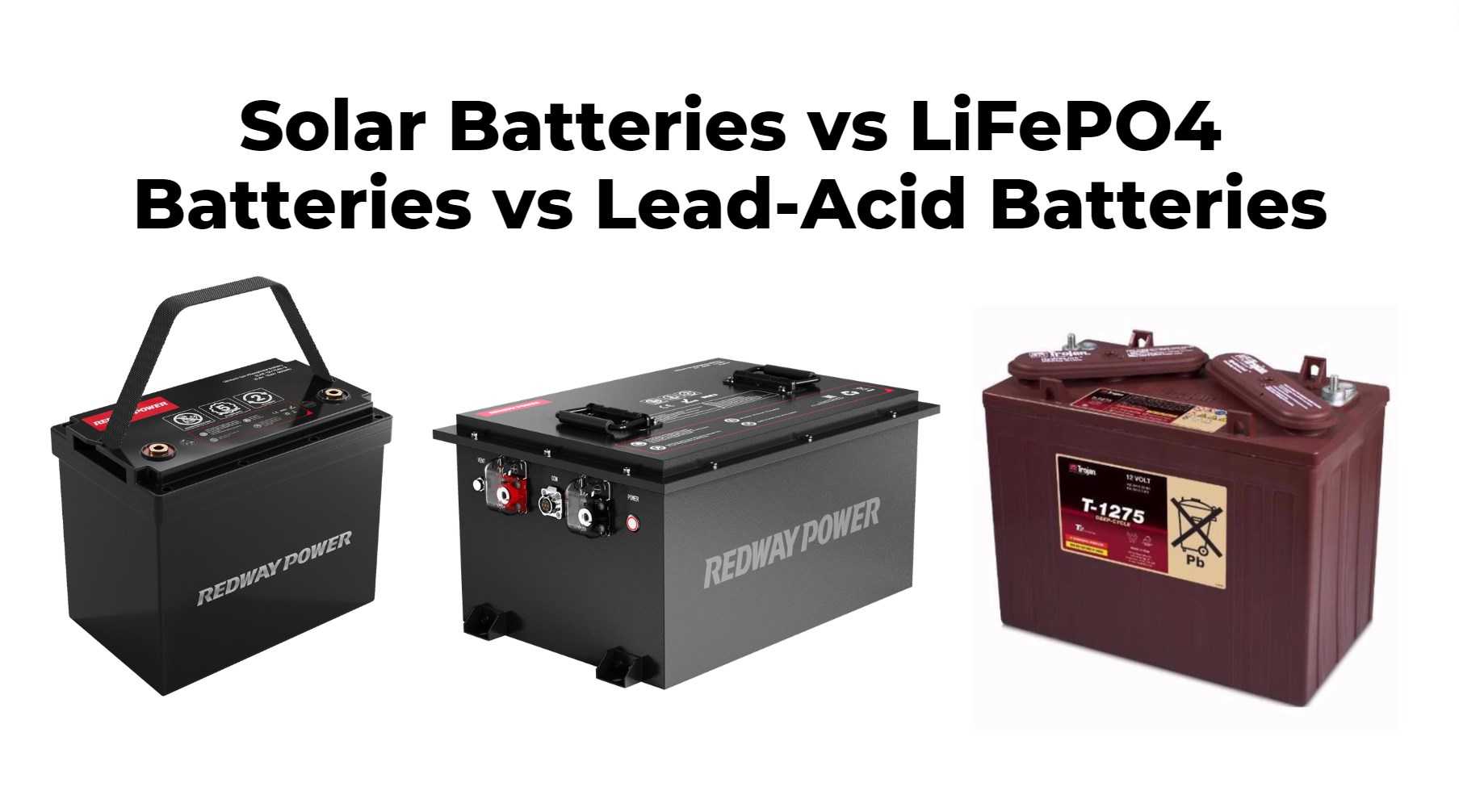Solar energy, a key player in the transition towards sustainable power, relies on effective storage solutions to ensure uninterrupted electricity supply. Among the various energy storage options available, solar batteries are fundamental components in enabling efficient use of solar power. In this article, we will explore solar batteries, including the LiFePO4 batteries, and traditional lead-acid batteries to help you understand their strengths and applications.
Solar Batteries: Harnessing Solar Energy for Later Use
Definition: Solar batteries, also known as solar energy storage batteries, store energy generated by solar panels for future utilization, ensuring a continuous power supply even during non-sunlit hours.
LiFePO4 Batteries: The Advancements in Energy Storage
Advantages:
- Longer Cycle Life: LiFePO4 batteries boast a longer cycle life compared to other lithium-ion batteries, enhancing their reliability for solar energy storage.
- Stability and Safety: These batteries offer high thermal and chemical stability, reducing the risk of overheating or combustion, crucial for safety in energy storage applications.
- High Energy Efficiency: LiFePO4 batteries have excellent charge-discharge efficiency, ensuring effective utilization of stored solar energy.
- Environmentally Friendly: Free of cobalt, making them a more eco-friendly choice.
Applications:
- Solar energy storage systems for residential, commercial, and industrial use.
- Energy backup systems for off-grid or grid-tied solar power installations.
Lead-Acid Batteries: Traditional and Cost-Effective Storage Solutions
Advantages:
- Cost-Effectiveness: Lead-acid batteries are affordable, making them an attractive choice for solar power system installations, especially in smaller residential setups.
- Familiar Technology: Well-understood and established in the field of energy storage.
- Recyclability: Highly recyclable, contributing to sustainability and environmental responsibility.
Types of Lead-Acid Batteries:
- Flooded Lead-Acid Batteries (FLA): Common and require regular maintenance to top up water levels.
- Sealed Lead-Acid Batteries (SLA): Maintenance-free and often used in smaller solar power systems.
Applications:
- Off-grid solar power systems where the main power grid is inaccessible.
- Grid-tied solar power systems with energy storage for backup power and peak electricity usage offset.
Choosing the Right Battery for Your Needs
The choice between solar batteries, LiFePO4 batteries, and lead-acid batteries depends on various factors, including cost, energy density, efficiency, cycle life, and environmental impact.
- LiFePO4 Batteries: Ideal for those seeking high performance, long cycle life, and environmental sustainability, willing to invest in advanced technology.
- Lead-Acid Batteries: Suitable for those prioritizing cost-effectiveness, simplicity, and established technology for their solar energy storage needs.
In summary, selecting the appropriate battery for your solar energy storage system requires a careful consideration of your specific requirements and preferences. As technology evolves, LiFePO4 batteries are gaining traction due to their enhanced performance and eco-friendliness. On the other hand, lead-acid batteries remain a reliable and cost-effective choice for various solar energy applications. Ultimately, the decision rests on aligning the features and capabilities of each battery type with your energy storage goals and budget.





